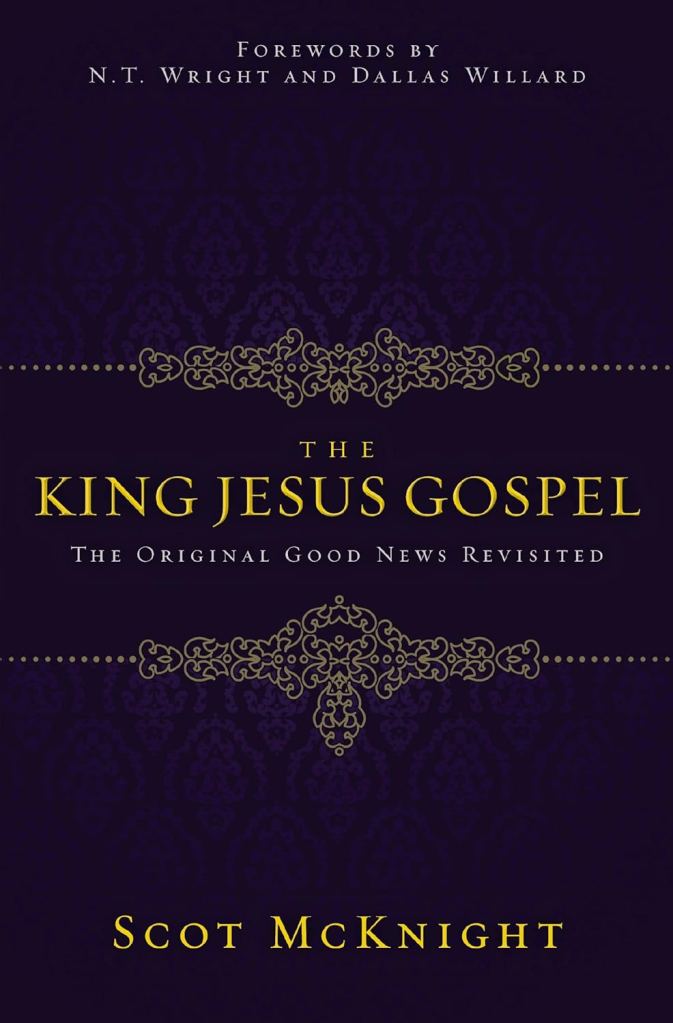The King Jesus Gospel by Scot McKnight

Gospel is one of the more common religious terms that we find in use in the English language. Saying something is the gospel truth is a way of emphasizing the reliability of a statement. Churches talk about The Gospel all the time. The idea that it means Good News is also widely understood. Yet, as McKnight points out, there is widespread misunderstanding about the nature of the Gospel. The Gospel has been reduced in much of Christianity to be all about a ticket to heaven. It is what he calls, a salvation culture.
When we look at the message of Jesus we find something far more robust and challenging. While salvation is a result of the Gospel and of putting one’s faith in Christ, the Gospel is far greater than just being forgiven and assured of eternal life. When Jesus began to preach He preached about the Gospel of the Kingdom. It is a message about the entirety of life here and now and for eternity. The life to come as well as life now are to be lived under the rule and reign of King Jesus.
One of the results of the focus on a salvation culture, rather than a kingdom culture, is that Christianity has been split between those concerned with salvation and those concerned with serving others in the here and now. It is a split that is unwarranted and actually damaging to the expansion of the Kingdom of Jesus. McKnight takes both sides of the debate to task, calling them to a fuller expression of the Gospel. For those who are focused on “getting people saved”, the challenge is especially pointed. This is in large part because much of the evangelical world is living in a salvation culture while much of the more progressive or liberal strands of the faith are living in the “helping people” culture. It is the evangelical culture that seems to be the focus of McKnight’s critique and while it may he hard to swallow for people committed to saving souls, his critique is spot on.
One of the results of the salvation culture is the common occurrence of people who say they accepted Jesus as savior but not as Lord. This usually comes in the form of someone saying this a few years after having prayed a prayer for salvation and only later waking up to the need to actually follow Jesus as Lord. In the New Testament and the early church, this would have been a non-sense statement. Jesus only becomes your savior because you acknowledge Him as Lord. The earliest confession of faith was not, Jesus is my savior, but rather, Jesus is Lord.
I found McKnight’s book to be incredibly helpful and clarifying. As I am working on my next book it has been a key resource. It is a book that anyone who is trying to follow Jesus needs to read and consider what changes they need to make in their understanding of the Gospel and how they live for Jesus.
